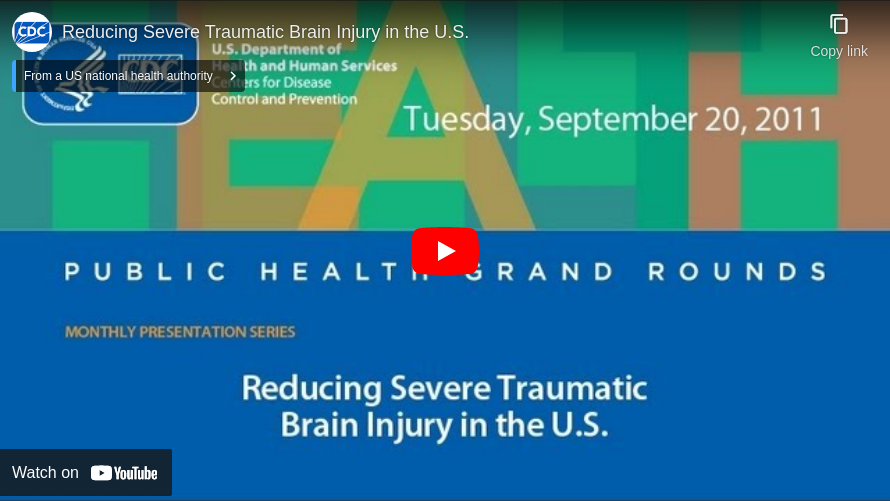Reducing Severe Traumatic Brain Injury in the US
Presented on .
Traumatic brain injury, or TBI, is a serious public health problem that affects approximately 1.7 million Americans every year. Of all injury deaths in our country, one in three cases are TBI–related, and an estimated 5.3 million Americans are living with a TBI–related disability. Beyond the potential for impairment to the cognitive, sensory, and motor functions in an individual, the economic burden of TBI is in excess of $76.5 billion. While significant advances in early treatment and prevention policies such as seat belt and motorcycle helmet laws have proven successful in reducing severe cases of TBI, many public health challenges remain. In addition to the economic impact of TBI, there is need for better surveillance, data, and coordination among the medical, public health and community sectors on both the civilian and military sides of the aisle.
This session of CDC′s Public Health Grand Rounds further addressed these challenges and explored promising policies, guidelines, and interventions such as progesterone treatments to further reduce the severity and number of cases of traumatic brain injury in the U.S.
- Lisa C. McGuire, PhD
- Acting Associate Director for Science, Division of Injury Response
National Center for Injury Prevention and Control, CDC
- David W. Wright, MD
- Associate Professor of Emergency Medicine
Director, Emergency Neurosciences
Emory University School of Medicine
- Arthur Kellermann, MD, MPH
- Vice President and Director of RAND Health
RAND Corporation
- Tanja Popovic, MD, PhD
- Scientific Director
Get notified about the latest updates from Public Health Grand Rounds right in your inbox by setting up an alert today!
Get notified about the latest updates from Public Health Grand Rounds right in your inbox by setting up an alert today!Sign Up
Get notified about the latest updates from Public Health Grand Rounds right in your inbox by setting up an alert today!

